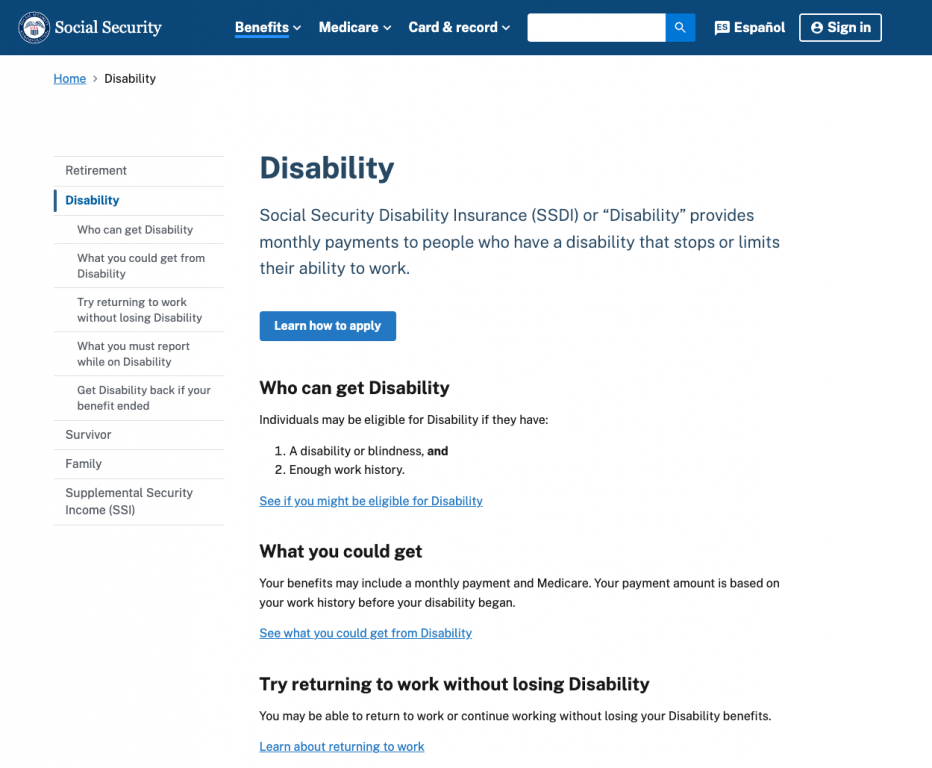Bill Would Reduce Wisconsin Unemployment Aid for Workers with Disabilities
Wisconsin has among the lowest unemployment insurance benefits in the country.
Cliff Neuman of Grafton has been living on Social Security Disability Insurance, or SSDI, for much of his life. He’s needed to work in order to supplement that income. But his job and earning options are very limited.
“It’s hard to get a job when you’re on disability,” Neuman told WPR. “People look at you and think you can’t do the job well.”
[inarticled]Neuman became unemployed earlier this year when the grocery store he was working at stopped scheduling him for shifts. With the help of an attorney, Neuman filed weekly Wisconsin unemployment certifications. But he was denied Unemployment Insurance (UI) benefits because he receives SSDI income.
“That’s not fair to people like me who count on that,” Neuman said. “I need that to pay the bills.”
Now, a draft bill circulating in the state Legislature would repeal Wisconsin laws that prevent people like Neuman from receiving both SSDI and UI benefits. However, it would still penalize workers with disabilities by slashing the amount of money they can receive from UI.
It’s the latest in an ongoing debate within the state government over whether workers who receive federal disability payments should also be eligible to get unemployment benefits from the state — and if so, how much.
The statutory ban on receiving both types of benefits first went into effect in 2013. At that time, Republican lawmakers decided it constituted “double dipping” or even fraud.
“When these laws were passed, there was this stereotype or presumption that once you are disabled, you stop working completely,” labor and employment attorney Victor Forberger told WPR’s “Wisconsin Today.” “That simply is not true.”
“Lots of disabled people who get SSDI benefits work either part time, and some even full time,” Forberger said. “That Social Security benefit they’re receiving is usually not enough to live on, so they need additional work.”

The landing page to apply for federal Social Security Disability Insurance. Returning to work is allowed under SSDI in certain cases.
During the pandemic in 2020, the state Department of Workforce Development, or DWD, publicly acknowledged that the laws were likely discriminatory and stated that the ban, “ran contrary to agency policy to protect against such discrimination,” according to a statement from Haley McCoy, DWD communications director.
In a 2021 class action lawsuit, Forberger represented Wisconsin workers who challenged those laws — including Neuman, who was unemployed at that time. They won last year when a federal judge ruled that the laws do discriminate against people with disabilities, violating the Americans with Disabilities Act and the Rehabilitation Act.
In July this year, the same federal judge ordered a temporary injunction preventing the DWD from denying future unemployment claims because of SSDI. Now, DWD is being ordered to pay back people like Neuman who were denied jobless pay over the last decade.
“DWD will continue to meet the requirements of the court’s order and any legislation that is signed into law,” according to the same DWD statement.
Forberger said he expects notices to go out to those eligible sometime in October. Once those notices are out, recipients will have 90 days to file for compensation.
Thousands could be eligible for compensation for denied claims
When the 2013 law was proposed, the DWD estimated that only about 50 people in the state would be affected, according to reporting from Forberger. But once the law was enacted, that number started to climb significantly.
Since then, thousands of people have been affected by the law, and Forberger said many could be eligible to get paid by DWD for claims that have been denied over the last decade or more.
But it might be difficult for people to track what payments they’re due. Filing for unemployment in Wisconsin is more complicated than in other states, Forberger said. DWD requires weekly certification of unemployment, and many people who were denied years ago likely didn’t continue to certify. They’ll now have to go back years to find out which weeks they were actually unemployed.
Forberger said DWD has information that might be helpful, like information about when people filed their initial claim.
“One of the arguments we’re having with the Department of Workforce Development right now is how much help the department is going to be providing folks with to let them know which weeks they were unemployed and which weeks they have to file for,” Forberger said.

Those seeking unemployment in Wisconsin must file claims weekly to receive benefits, as seen here on the Wisconsin Department of Workforce Development website.
New proposals, similar results
At the same time plaintiffs are expected to begin applying for compensation, a draft bill from the state Unemployment Insurance Advisory Council is circulating in the Wisconsin state Legislature that would penalize disabled workers seeking unemployment benefits from the state.
The council, which is made up of management and labor representatives in Wisconsin, approved the legislation in late September this year.
“Instead of just denying everyone outright, it’s supposed to apply a financial offset against the benefits,” Forberger said. “(But) the offset that would be applied against them would be substantial.”
Wisconsin has among the lowest unemployment insurance benefits in the country. In many cases, those receiving SSDI benefits in Wisconsin would get nothing from UI with the offset in place, Forberger said.
Earlier this year, the DWD proposed an even more significant 100 percent offset, but walked back the proposal in September. DWD and the Unemployment Insurance Advisory Council declined to comment on the recent developments.
Draft bill would reduce Wisconsin unemployment aid for workers with disabilities was originally published by Wisconsin Public Radio.
If you think stories like this are important, become a member of Urban Milwaukee and help support real, independent journalism. Plus you get some cool added benefits.























stop discriminating. people need income to pay their bills. and unemployment needs to be increased.
This is just another example of the stupidity and cruelty of RRRs (radical reactionary republicans.) Thriving economies have strong middle class and lower class that can survive. It’s stupid economics because it allows the very wealthy to amass huge fortunes that are not fed back into the economy. This limits the growth potential and increases the occurrence of recessions and depressions. The backbone of every capitalist economy are the middle and working class. This includes small businesses. We no longer have a capitalist “free market” economy. Our economy is more akin to mercantilism (economy dominated by government supported monopolies) wealth and power are concentrated in the hands of the aristocracy/oligarchs. Working people were either enslaved or paid sufficient wages to survive.